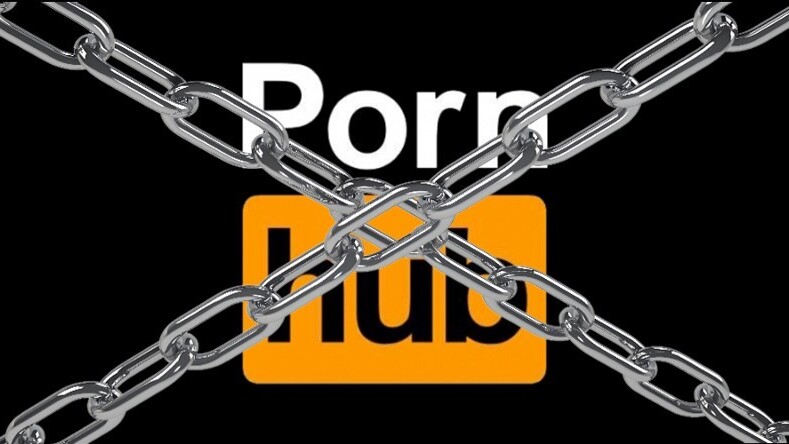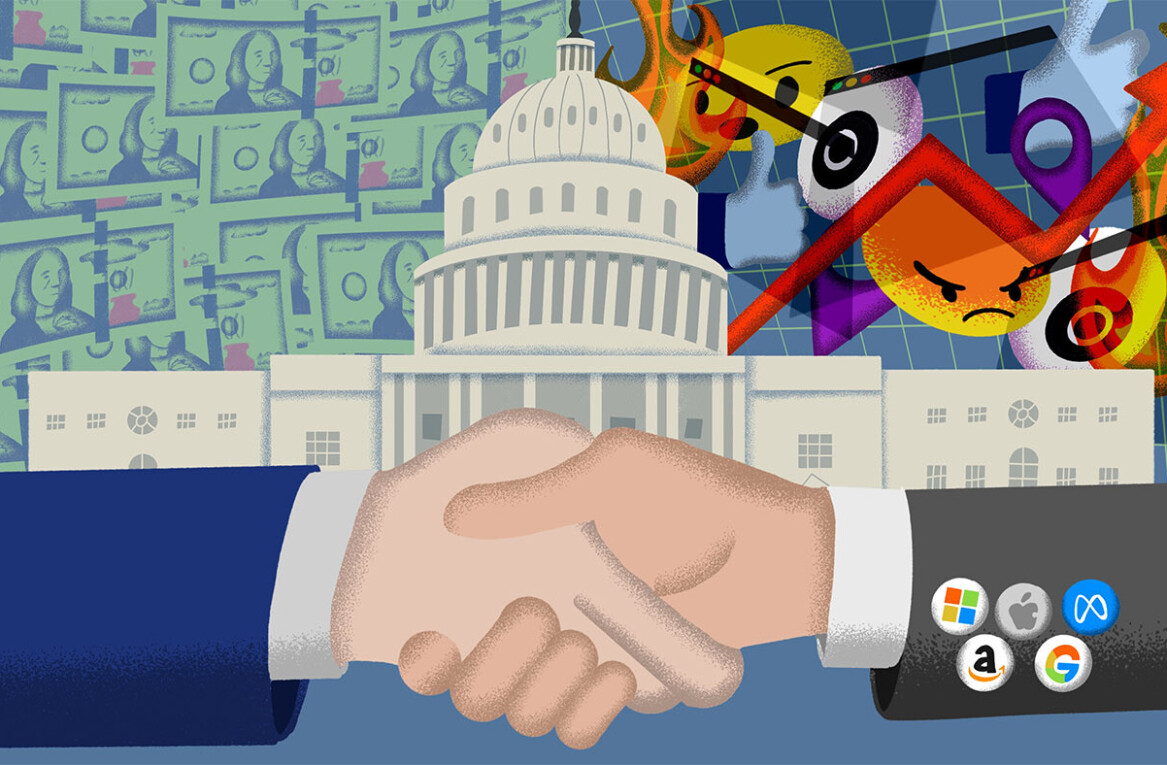
When I heard last week that Congress had voted to repeal restrictions that would’ve prohibited internet service providers (ISPs) from monitoring and selling users’ browsing histories, locations, app usage, identifying information, and more to whomever was buying, I wasn’t too bothered by the news. Like many people my age, I grew up with the understanding that Google knows everything about me, and that there isn’t much point in getting worked up about it.
And, hey, I’m a porn industry journalist: I don’t have much to hide. I visit a lot of porn sites, and it’s for research, okay? But late last week, as I considered finding a sexy website for more, er, personal reasons, I started to rethink my laissez-faire attitude. As Mike Stabile, communications director at the adult entertainment industry trade association the Free Speech Coalition (FSC) put it when I spoke to him, “Even though I’m open and there’s nothing that I’d be particularly embarrassed about, there’s still stuff that’s very, very private.”
Which basically boils down to a couple of main questions: If President Trump signs Congress’s online privacy repeals into law, as he’s expected to do, can I trust my favorite smutty websites to keep my secrets safe from my ISP? And what’s at stake if I can’t?
After all, I’m not in Qatar, where homosexuality is outlawed, or China, where porn itself is patently illegal. As an American, my right to watch pornography is protected by the First Amendment — and the same goes for millions of less-vocal smut consumers around the nation. But Stabile cautions that we shouldn’t play fast and loose with porn and privacy. “With adult content more than with any other content,” he says, “there’s the opportunity for shaming and blackmailing and outing… Anytime there’s a company, whether it’s an ISP or someone else, holding on to that data — it’s a threat to you.”
We’re living in particularly threatening times for porn in America. “We’ve got a president who’s signed a pledge saying that adult content doesn’t deserve First Amendment protections,” Stabile notes. His proof: Trump signed off on the GOP’s 2016 platform declaring that pornography is a “public health crisis” and vowed to “give serious consideration to appointing a Presidential Commission to examine the harmful public health impact of Internet Pornography.” Emboldened by this federal anti-porn stance, five states have since passed resolutions with similar language, and several others are moving down the same path. Utah, the ringleader of the states’ rush to decry porn, has introduced legislation that would allow private citizens to sue porn producers if they feel that smut has injured them.
In other words, if I were living in Utah, South Dakota, Tennessee, Arkansas, or Virginia, I’d be pretty concerned about my online porn consumption right now, especially since it looks like ISPs will soon be keeping closer track of what I like to watch. And although I’m glad I’m not in any of those states, I’m still worried that my libidinous online habits might come back to bite me in the not-too-far future.

But the news isn’t all bad for perverts like me. In response to a Google transparency report last year that outed adult entertainment as one of the least-secure online industries, pornographers are upping their security game across the board. The Center for Democracy and Technology (CDT) teamed up with the FSC in the fall of 2016, before online privacy repeals even seemed like a possibility, to help adult websites adopt HTTPS encryption. Both parties were happy to find that, while not everyone they approached had made the leap yet, “The people we were reaching out to said, ‘Oh, we’re in the process. It’s not if we’re going to do it, but how and when,’” reports Joseph Lorenzo Hall, chief technologist at the CDT.
You’re probably familiar with the green padlock that appears next to your location bar when you’re on a secure website (like this one!). That trusty little guy indicates that you’re on a website that’s running on the HTTPS platform, which means it’s safe from the eyes of anyone who’s watching you online. Hall explains that HTTPS encryption takes “what would’ve normally been your typical page load, and wraps it in a very, very super-strong sheath — a ‘tunnel,’ they call it — so that anything that happens in there, no one can see.” The end result is that, although your ISP can see what domain you’re at (let’s say, for instance, MakeLoveNotPorn.tv), it can’t see what video you’re streaming there.
Furthermore, says Hall, “Businesses that accept payments online are bound by what are called payment card industry guidelines, which require that any credit card data accepted over the internet must be done over a secure channel.” That means that most online porn and webcam sites are already running HTTPS somewhere. However, while many paysites protect their financial transactions from prying eyes, there are plenty of other pages under their auspices that might not be encrypted. So, while your ISP might not be able to see how much you spend at Hustler.com, they might see what videos you’ve considered before forking over cash for a trial subscription.
When the CDT and the FSC teamed up, they were concerned that, on sites that didn’t require financial transactions, consumers were being left vulnerable. After all, as Stabile says, “A lot of the tube sites are free sites. And so that focus on credit card data [encryption] wasn’t as big. What you were finding was that people could find out the name that you uploaded under, or what pages you were looking at.” That’s partly because all elements of an encrypted website must be similarly secure, and it can be tough to convince your advertisers to supply you with HTTPS-enabled ads.
But, in a move that may bode well for porn fans across the board, tube sites are taking encryption seriously. Industry behemoth MindGeek — the parent company of the world’s 38th-largest website, PornHub, as well as most of the other well-known porn-streaming tube sites and production powerhouses Brazzers and RealityKings — got to work on encrypting its family of sites right away. As of this week, PornHub , YouPorn, and RedTube have already rolled out default HTTPS encryption across their sites, and others are soon to follow. Brad Burns, VP of YouPorn, tells MEL, “ Users are usually apprehensive when it comes to browsing adult sites. We wanted to change that standing by giving our visitors an extra layer of security. This way, they can browse and view content with complete confidence.”
Though there has long been bad blood between the tube sites and the rest of the industry due to the very real issue of stolen content, MindGeek’s decision to encrypt will likely lead to industry-wide improvements for consumer privacy. Hall explains: “If you want to advertise on one of those big sites, then you need to get encrypted ads. But also, for everyone else who has ads on their sites in the adult industry, they’re going to be more likely to get ads that are encrypted because the big guys have them. So it will also trickle down to the small pages, where they’ll have a better time once they switch.”
For this reason, Pornhub VP Corey Price is optimistic about the internet’s response to increased snooping. “Eventually most websites will be HTTPS,” he tells MEL, “as browsers make it more obvious [when]connections are insecure and privacy is at risk.” While Pornhub, he says, “collects anonymized data for analytics to improve our site, as well as publish interesting data insights on the Pornhub Insights page,” Price maintains that “privacy is most important when consuming adult content.”
Far more than just financial considerations, the adult industry understands privacy concerns from an intimate perspective. Most porn producers and performers operate under assumed names to protect their own privacy in a world that’s historically stigmatized their line of work, and in America’s current political climate, everyone involved in adult content — whether on the production or consumption side — is well-served by doing their utmost to preserve their privacy.
This story is republished from MEL Magazine, a new men’s digital magazine that understands that there’s no playbook for how to be a guy. Sign up for their newsletter here and follow them down here:

Get the TNW newsletter
Get the most important tech news in your inbox each week.




